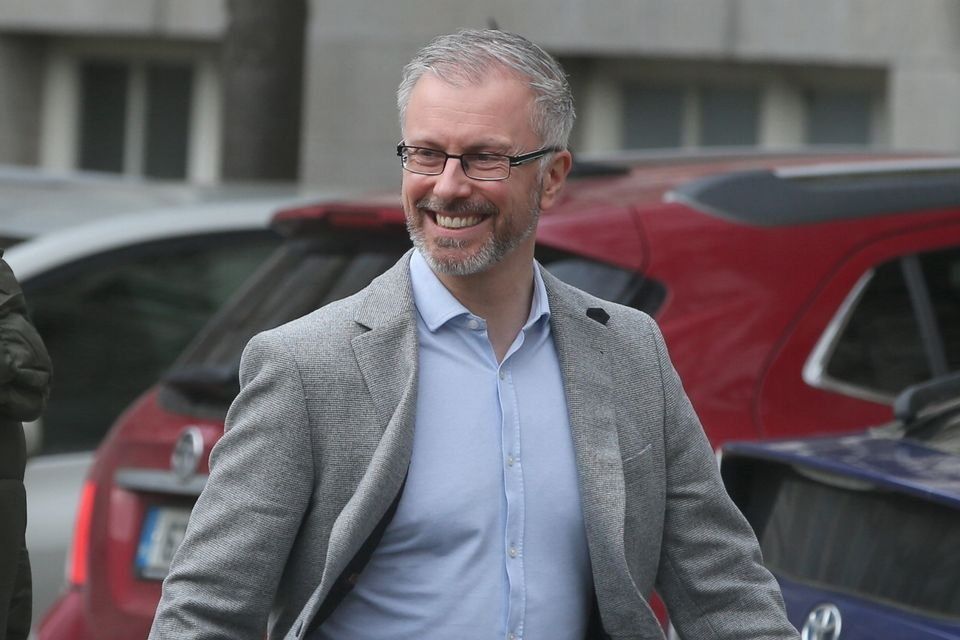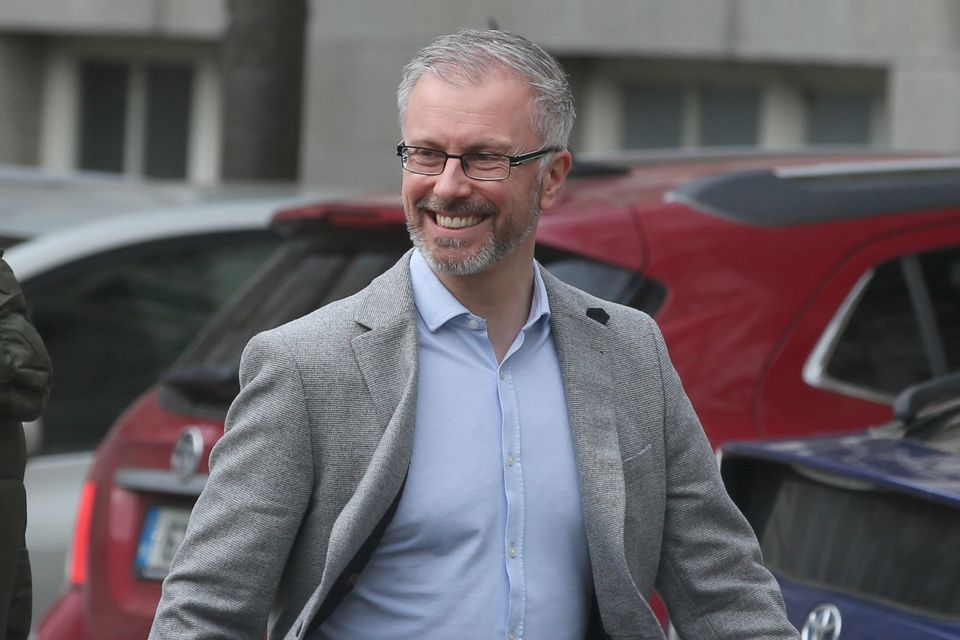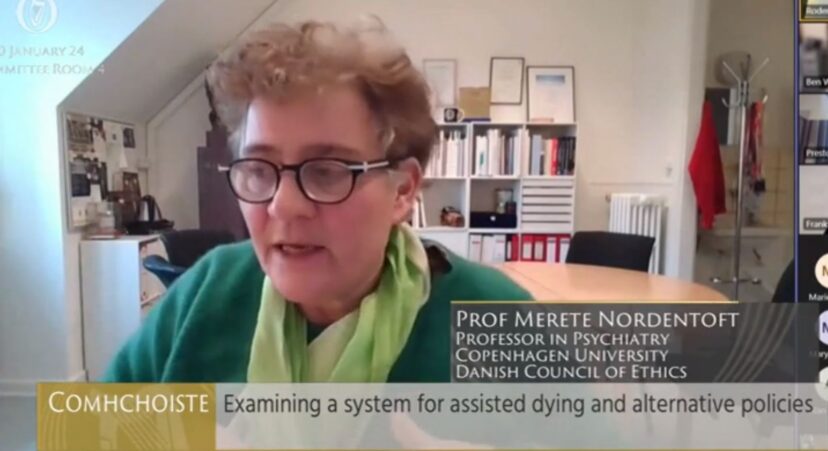‘The role of mothers should continue to be cherished’ – Catholic bishops urge No-No votes in care and family referendums
Equality Minister Roderic O’Gorman is leading the charge for a Yes-Yes vote. Photo: Stephen Collins
The country’s Catholic bishops have signalled their opposition to the two proposed amendments to the Constitution in the March 8 referendums.
In their statement, the bishops said the family amendment to Article 41 would diminish the unique importance of the relationship between marriage and family and was likely to lead to a weakening of the incentive for young people to marry.
Marriage, they noted, entailed a public and legal commitment, but the term “durable relationship” was shrouded in legal uncertainty and open to wide interpretation.
“It does not make sense that such an ambiguous reality would be considered ‘antecedent and superior to all positive law’ and acquire the same ‘inalienable and imprescriptible’ rights as those ascribed to the ‘family founded on marriage’,” the bishops said in a statement.
The care amendment to Article 41.2, they warned, would have the effect of abolishing all reference to motherhood in the Constitution and leave unacknowledged the particular and “incalculable societal contribution” that mothers in the home have made and continue to make in Ireland.
“The role of mothers should continue to be cherished in our Constitution,” they said.” What benefit would it be to Irish society to delete the terms ‘woman’ and ‘mother’”, they ask.
Contrary to some recent commentary, the bishops underline that the present constitutional provision “emphatically does not state” that “a woman’s place is in the home”. Neither does it excuse men of their duties to the home and family.
Rather, in contemporary society there now existed a welcome co-responsibility between women and men for every aspect of domestic life, including the provision of care in the home, they said.
The State, they said, had to date failed to financially acknowledge the role of women in the home and there was no indication there would be provision for the adequate financial remuneration of carers.
The bishops said the proposed term “strive to support” appeared to weaken the State’s constitutional responsibility to materially and legislatively support such care.
“Indeed, the proposed new Article 42B does not actually confer any enforceable rights for carers or for those being cared for,” they said.
“We believe that, rather than removing the present acknowledgement of the role of women and the place of the home, it would be preferable and consistent with contemporary social values that the State would recognise the provision of care by women and men alike.”
With 12 days to go to polling day on March 8, campaigners on both sides are stepping up activities.
While the bishops have urged people to consider voting No-No, the National Women’s Council of Ireland (NWC) has urged people to vote Yes-Yes, as have groups such as One Family, Treoir, and Family Carers Ireland.
Damien Peelo, CEO of Treoir, which supports parents who are not married, said: “The family referendum is our chance to recognise all families equally, while still protecting marriage.”
"A Yes vote will give constitutional protection to lone-parent families, kinship carers where relatives have stepped in to raise children, unmarried families and cohabiting couples.”
John O’Meara, who recently won a case in the Supreme Court for co-habiting couples with children to be entitled to the widow/widower’s pension, urged citizens to support two Yes votes and highlighted the importance of the referendum for all families.
Orla O’Connor, director of the National Women’s Council (NWC), said: “A Yes vote in the care referendum is our chance to remove sexist language and limits on women from our Constitution.”
She encouraged voters to consider whether they wanted young women and girls growing up in an Ireland “where the Constitution still tells them that their primary place, indeed their ‘life’ is in the home? And that they have ‘duties’ and the boys and men don’t?”
The Free Legal Advice Centres (Flac) has backed the amendment on family but not care. Flac said it was “highly regrettable” voters wouldn’t have the choice to simply delete the so-called ‘women in the home’ provision and instead were being are asked to replace it with a new ‘family care’ provision.
Calling for a No-No vote, conservative group Family Solidarity said: “One particularly concerning possibility is the legal recognition of polygamous relationships under the guise of ‘family’.”
The group noted former attorney general Michael McDowell’s concerns over the lack of clear legal definition of the terminology “durable relationships”.
“This could lead to unforeseen and profound changes in family law, affecting areas such as inheritance, welfare rights, and more,” the group claimed.
On the generic concept of care, the group warns this move to “gender-neutral language, while seemingly progressive, actually erases the specific recognition of mothers and their unparalleled role in nurturing and maintaining the familial structure”.





